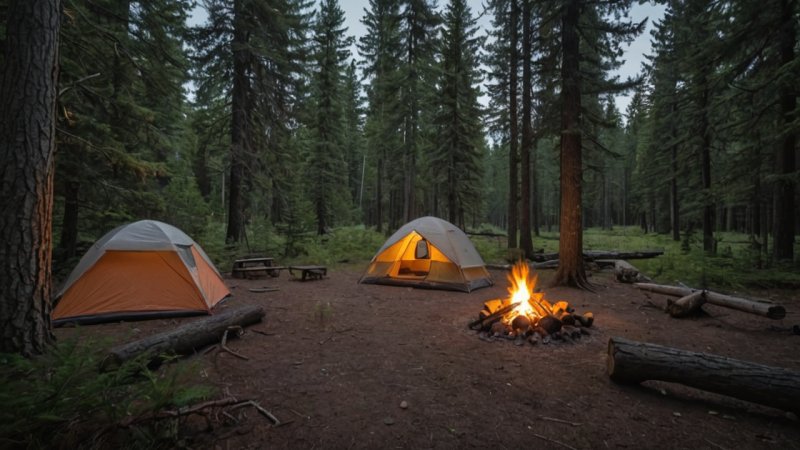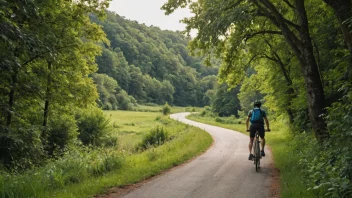Camping in the wilderness offers a unique opportunity to connect with nature, escape the hustle and bustle of everyday life, and create unforgettable memories. However, venturing into the great outdoors comes with its own set of risks and challenges. To ensure a safe and enjoyable experience, it is crucial to follow safety guidelines that can help mitigate potential dangers. Here are some essential tips on how to stay safe while camping in the wilderness.
1. Choose the Right Campsite
Your choice of campsite can make a significant difference in your safety while camping in the wilderness. Look for established campsites that are away from potential hazards such as falling rocks, flooding, or wildlife trails. Ensure that the site is at least 200 feet away from water sources to minimize the risk of contamination and to avoid flooding during rain. Additionally, consider the wind direction when setting up camp; choose a location that protects you from strong winds and potential falling branches.
2. Prepare for Weather Changes
Weather conditions can change rapidly in the wilderness, so it is essential to be prepared for all possible scenarios. Before heading out, check the weather forecast for the area you plan to visit. Pack layers of clothing to accommodate varying temperatures and precipitation. Waterproof gear, such as jackets and tents, can be invaluable during sudden rainstorms. Consider bringing a portable weather radio or downloading a weather app to monitor conditions while camping.
3. Know the Local Wildlife
Understanding the wildlife in the area can help you avoid dangerous encounters. Research the types of animals you may encounter, such as bears, snakes, or insects, and learn how to react in case of an encounter. Store food securely in bear canisters or hang it from a tree to prevent attracting wildlife to your campsite. Familiarize yourself with basic first aid for bites and stings, and always carry a first aid kit that includes treatments for common issues related to wildlife encounters.
4. Practice Fire Safety
Fires are a great source of warmth and a means to cook food, but they can also pose significant risks if not managed properly. Before starting a fire, ensure that it is allowed in your camping area and always follow local regulations. Clear a space around the fire pit of any flammable materials, and never leave the fire unattended. Keep water or a shovel nearby to extinguish the fire completely before leaving the site. Remember to fully extinguish the fire—coals can stay hot for hours, so be thorough.
5. Stay Hydrated and Nourished
While it may seem simple, staying hydrated and nourished is critical for maintaining your strength and focus while camping. Always carry sufficient water, or have a reliable method for purifying water from natural sources. Dehydration can lead to fatigue and poor decision-making, both of which can increase your risk while in the wilderness. Additionally, pack high-energy snacks to keep your energy levels up, especially during hikes or strenuous activities.
In conclusion, camping in the wilderness can be a thrilling and rewarding experience, but it requires careful planning and awareness of your surroundings. By choosing the right campsite, preparing for weather changes, understanding local wildlife, practicing fire safety, and staying hydrated, you can enhance your safety and enjoyment on your outdoor adventures. Keep these tips in mind and embrace the beauty of nature with confidence.






